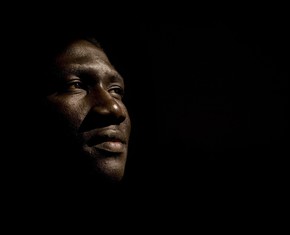The views expressed in our content reflect individual perspectives and do not represent the authoritative views of the Baha'i Faith.
O son of man! The temple of being is My throne; cleanse it of all things, that there I may be established and there I may abide.
O son of being! Thy heart is My home; sanctify it for My descent. Thy spirit is My place of revelation; cleanse it for My manifestation.
O son of man! Put thy hand into My bosom, that I may rise above thee, radiant and resplendent.
O son of man! Ascend unto My heaven, that thou mayest obtain the joy of reunion, and from the chalice of imperishable glory quaff the peerless wine. – Baha’u’llah, The Hidden Words, pp. 17-18.
These four passages from Baha’u’llah’s book The Hidden Words all focus on one theme: the sanctity and spiritual beauty of the human heart.
In the mystical teachings of every Faith, and in the writings of Baha’u’llah, we learn that God owns our hearts:
He hath… singled out the hearts of men as His Own domain. – Baha’u’llah, Tablets of Baha’u’llah, pp. 220-221.
The one true God hath ever regarded the hearts of men as His own, His exclusive possession — and this too but as an expression of His all-surpassing mercy, that haply mortal souls may be purged and sanctified from all that pertaineth to the world of dust and gain admittance into the realms of eternity. – Baha’u’llah, The Summons of the Lord of Hosts, p. 110.
 So these four Hidden Words, from Baha’u’llah’s bountiful book of short aphorisms of eternal wisdom, have some profound advice for each human being. They ask us to cleanse and sanctify the inner landscape of our own heart and make it the dwelling-place of exalted and spiritual thoughts and emotions. They ask us to save the affections of our hearts for what truly lasts, instead of the shiny baubles and rapidly-disappearing attractions of the material world. They ask us to detach ourselves from the material world and turn our gaze to the spiritual realm:
So these four Hidden Words, from Baha’u’llah’s bountiful book of short aphorisms of eternal wisdom, have some profound advice for each human being. They ask us to cleanse and sanctify the inner landscape of our own heart and make it the dwelling-place of exalted and spiritual thoughts and emotions. They ask us to save the affections of our hearts for what truly lasts, instead of the shiny baubles and rapidly-disappearing attractions of the material world. They ask us to detach ourselves from the material world and turn our gaze to the spiritual realm:
O friend, the heart is the dwelling of eternal mysteries, make it not the home of fleeting fancies; waste not the treasure of thy precious life in employment with this swiftly passing world. Thou comest from the world of holiness — bind not thine heart to the earth; thou art a dweller in the court of nearness — choose not the homeland of the dust. – Baha’u’llah, The Seven Valleys, p. 34.
What does this mean?
From a Baha’i perspective, it means transcending the lower self and ascending to a higher one. It means rising above the temporary, aspiring to the permanent and seeking the mystical temple of being:
Forsake thine own desires, turn thy face unto thy Lord, and walk not in the footsteps of those who have taken their corrupt inclinations for their god, that perchance thou mayest find shelter in the heart of existence, beneath the redeeming shadow of Him Who traineth all names and attributes. – Baha’u’llah, Gems of Divine Mysteries, pp. 48-49.
We all come from God, and we all return to God. Every great Faith teaches this eternal truth. In order to abide in that everlasting abode, the Baha’i writings say, we must “seek out the holy breathings of the spirit…” But what does it mean to forsake your own desires and renounce the lower self? Abdu’l-Baha explains:
Regarding the statement in The Hidden Words, that man must renounce his own self, the meaning is that he must renounce his inordinate desires, his selfish purposes and the promptings of his human self, and seek out the holy breathings of the spirit, and follow the yearnings of his higher self, and immerse himself in the sea of sacrifice, with his heart fixed upon the beauty of the All-Glorious. – Selections from the Writings of Abdu’l-Baha, p. 206.
This deep, constant and unceasing love for “the beauty of the All-Glorious,” which can only come from the invisible kingdom, has a profound claim on our hearts:
Give a hearing ear, O people, to that which I, in truth, say unto you. The one true God, exalted be His glory, hath ever regarded, and will continue to regard, the hearts of men as His own, His exclusive possession. – Baha’u’llah, Gleanings from the Writings of Baha’u’llah, p. 206.
















Comments
Sign in or create an account
Continue with Googleor